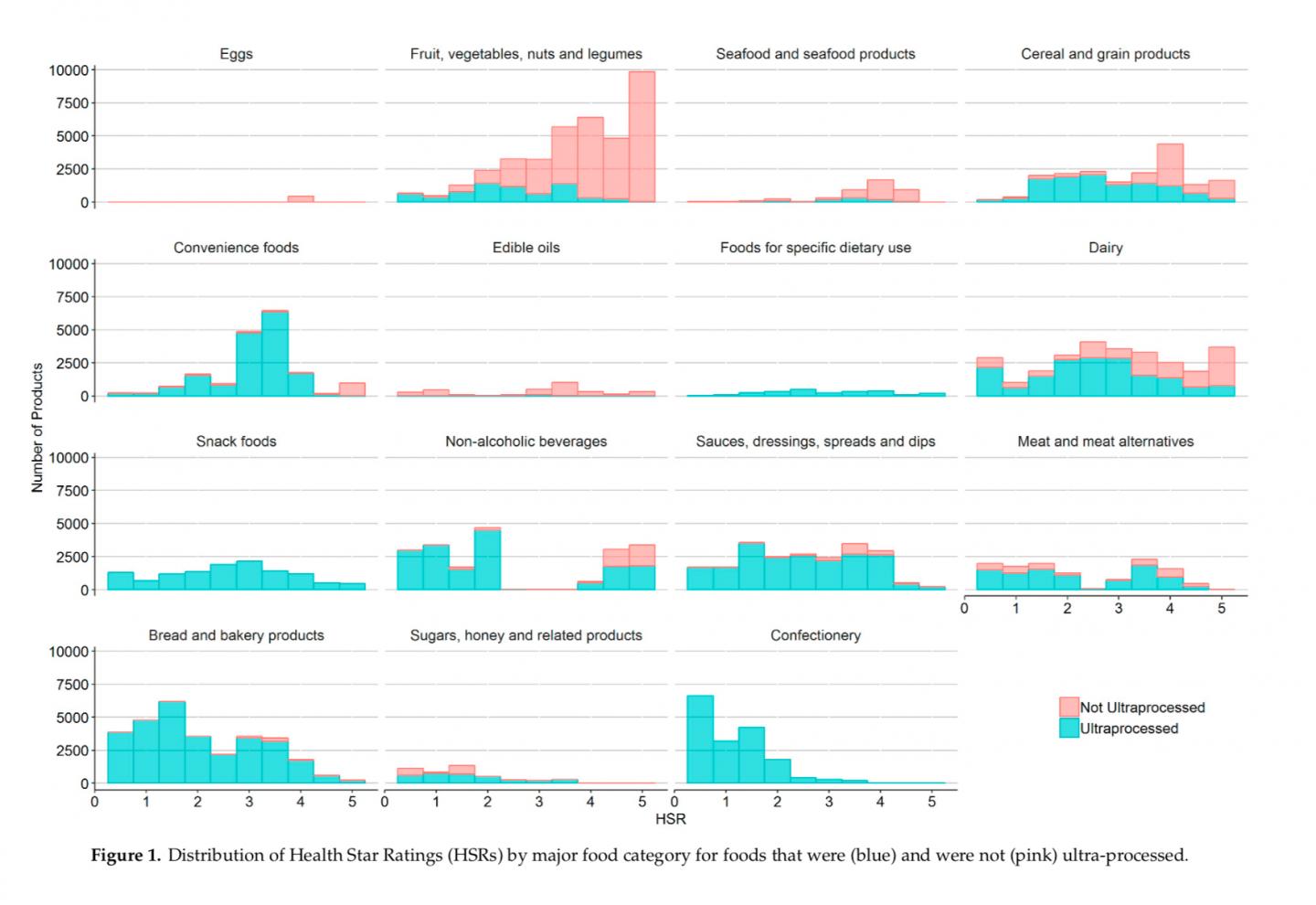Americans are overexposed to products that are high in calories, saturated fat, sugar and salt

Credit: Northwestern University
- About 80% of Americans’ calorie consumption comes from store-bought foods, beverages
- Food supply plays a central role in the development of obesity, cardiovascular disease
- Compared to other western countries, U.S. has more sugar and sodium content
- Manufacturers ‘can and should be doing a whole lot better’ at providing healthy options
CHICAGO — Americans are overexposed to products that are high in energy, saturated fat, sugar and salt, according to a new Northwestern Medicine study that reports the United States packaged food and beverage supply in 2018 was ultra-processed and generally unhealthy.
Since about 80% of Americans’ total calorie consumption comes from store-bought foods and beverages (packaged and unpackaged), the food and beverage supply plays a central role in the development of chronic disease including obesity and cardiovascular disease.
The study was published today, July 24, in the journal Nutrients. It aims to provide new information for consumers, researchers and policymakers to encourage food manufacturers to reformulate or replace unhealthy products and to inform the U.S. government on where action may be needed to improve the healthfulness of the U.S. packaged food and beverage supply.
“To say that our food supply is highly processed won’t shock anyone, but it’s important that we hold food and beverage manufacturers accountable by continually documenting how they’re doing in terms of providing healthy foods for consumers,” said lead author Abigail Baldridge, a biostatistician in the department of preventive medicine at Northwestern University Feinberg School of Medicine. “And the verdict is they can and should be doing a whole lot better.”
As classified by the NOVA Food Classification System developed at the University of Sao Paulo in Brazil, “ultra-processed food and beverages” is the fourth and final group of foods that “are industrial formulations made entirely or mostly from substances extracted from foods (oils, fats, sugar, starch and proteins).” They are derived from hydrogenated fats and modified starch, and are synthesized in laboratories.
The scientists analyzed 230,156 products and, using the NOVA classification system, found 71% of products such as bread, salad dressings, snack foods, sweets, sugary drinks and more were ultra-processed. Among the top 25 manufacturers by sales volume, 86% of products were classified as ultra-processed.
“Bread and bakery products” was the only category consistently among the highest third across all four nutrient categories in terms of nutrient levels (calories, saturated fat, total sugars and sodium).
Compared to other western countries like Australia, the U.S. food supply is similarly healthy but more processed with higher median sugar and sodium content, the study found.
Dietary guidelines are routinely updated, but no such regular surveillance or reporting on what is available on grocery shelves is available to consumers, researchers or policy makers. Changing the food supply must start with properly assessing it, Baldridge said.
“Food and beverage products continuously evolve, and reports like these highlight opportunities to make critical changes within specific manufacturers or product categories to reduce saturated fat, salt and sugars,” Baldridge said.
This evaluation can occur either by manufacturers replacing or reformulating the food and beverage products, Baldridge said.
“Our team has previously shown that breads, in particular, have 12% higher sodium content in the U.S. in comparison to the U.K., where national sodium-reduction strategies have contributed to lowering sodium levels in packaged foods,” Baldridge said.
The scientists analyzed data collected by local Chicago company Label Insight, which represents more than 80% of all food and beverage products sold in the U.S. over the past three years.
Collecting data on the packaged food and beverage supply is difficult because it is so large and about 20% of packaged foods in the U.S. turn over every year, Baldridge said.
“We need to better capture real-time information of our constantly changing food supply if we’re going to track and improve its healthfulness,” said study co-author Dr. Mark Huffman, the Quentin D. Young Professor of Health Policy, associate professor of preventive medicine and medicine at Feinberg and a Northwestern Medicine cardiologist.
To that end, the study team, including researchers at The George Institute for Global Health in Australia, last summer launched the U.S. version of FoodSwitch, a free mobile phone app that allows consumers to scan packaged foods to determine their healthfulness. If a product doesn’t exist in the app’s 268,000-product database, then the app asks the user to crowdsource the information by uploading photos of its barcode, nutritional label and packaging to update the app’s ever-growing database of foods.
The scientists in this study ranked foods based on their healthfulness number defined by a Health Star Rating system, which scores packaged foods between 0.5 stars (unhealthiest) to 5 stars (healthiest) to provide a quick look at the nutritional profile of packaged foods. They focused specifically on whether products were ultra-processed or not, and compared healthfulness and level of processing product categories and leading manufacturers.
###
Dr. Linda Van Horn, chief of nutrition in the department of preventive medicine and a professor of nutrition at Feinberg, also is a study co-author.
The study was funded by the American Heart Association, Verily and AstraZeneca through the One Brave Idea program; the JR Alberts Foundation; and Northwestern University Clinical and Translational Science Institute (grant number UL1RR025741).
Media Contact
Kristin Samuelson
[email protected]
Original Source
https:/
Related Journal Article
http://dx.




